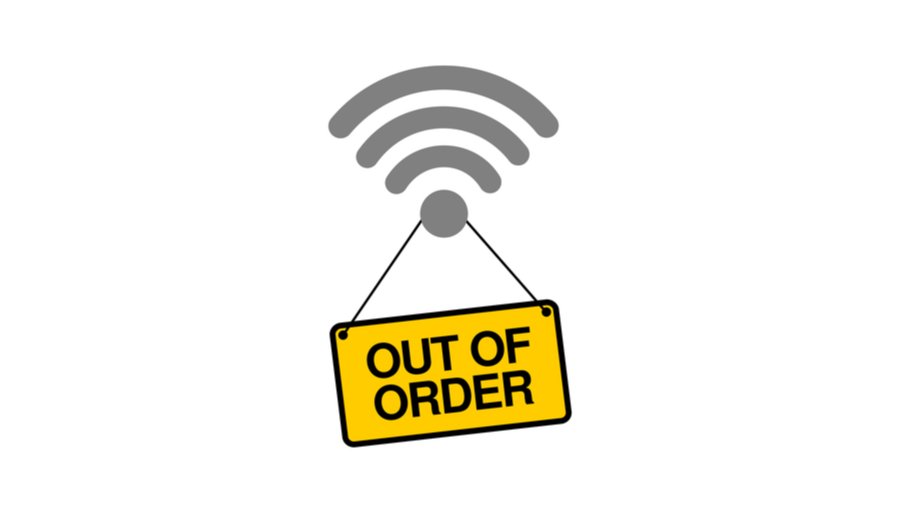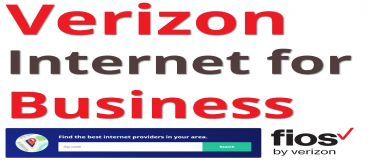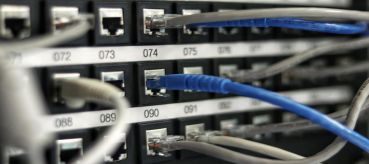Learn How to Avoid an Internet Outage's High Costs For Business

Internet outages are occurring on cable and fiber. Although an annoyance for residential users, Internet outages for companies can be nothing short of catastrophic. In particular, small companies usually rely on terrestrial Internet service distributed over miles of fiber internet, cable internet, or DSL internet. These lines are subject to interruption from a number of causes at any moment, resulting in a frustrating and expensive loss of connectivity. The difference between weathering the storm or seeing sales wash away for the average small business comes down to a secure internet contingency plan.
Know The Risk
Research and joint study on Small Business Risk conclude that business interruption, for good reason, is one of the top three worries of small business owners. The possibility of an outage is too high to overlook for small businesses that rely on Internet access for everything from point-of-sale transactions to website and social media marketing to cloud-based payroll and inventory applications. Businesses lose money without the opportunity to accept orders or credit card payments. Outages affect employee morale as well. An interruption prevents access to sensitive data in certain situations. The net effect is that thousands of dollars a day will cost an organization a single outage.
We're faced with frequent proof of this danger. In June, due to two cut fiber cables, a major cable provider experienced a national blackout, leaving several clients without internet, video, and voice services and crippling companies from Philadelphia to Seattle. The month before, when a construction worker mistakenly cut a cable, Houston-area mobile customers faced similar difficulties. We've seen so many times how hurricanes wreak havoc in their paths on the nations, leaving a wake of persistent outages.
Find Other Options
Small business owners must consider contingency plans given the pervasive danger outages that pose to the bottom line. Businesses can select from a number of Internet backup choices. In the event that one goes down, others can opt to use two separate landline technologies, such as fiber and DSL. These technologies, however, often share the same central offices and trunking corridors, so if one goes down, the other can also.
Looking for Realiable Internet for your Business?
AT&T Internet Business Internet Plans and Pricing
Alternatively, solutions such as 4G broadband networks can operate in a pinch, but when the user hits their data limit, they can be very costly. And, as anyone who's ever used their mobile phone to transmit data knows, cellular coverage can be unreliable and spotty in some locations, including metropolitan areas. Base stations still rely on terrestrial connections, so a vulnerable method remains to back up terrestrial communication with wireless.
True alternate path connectivity is what's needed. Satellite Enter, which uses a direction entirely different from terrestrial technology. In the event of an interruption, the combination of a terrestrial primary link combined with a satellite Internet backup connection gives the maximum possible network availability to sustain the company. A small activity will remain online even when terrestrial service fails, by diversifying the primary Internet connection. Companies get a backup link with a satellite that automatically kicks in in the event of a primary network outage.
Satellite networks of today are both extremely cost-effective and reliable internet for business. A simple installation of a Wi-Fi modem, antenna, and a failover router, which serves as a detection and communication system, is required for satellite backup. When installed, the failover router detects the failure and sends traffic over the high-speed satellite link in the event that the primary Internet connection goes down for any reason. The router senses the restart when the primary connection is restored and sends traffic back automatically over the landline network.
Through the use of satellite Internet backup, essential business systems such as credit card processing, data connectivity, and online services continue to function as long as the electricity stays on in the event of a primary outage. Automated technology makes it quick and easy to move from land to satellite and back again, without any human interference.
Act for the sake of your business
Studies continue to show that only one in three business owners evaluates backup solutions to safeguard their activities, despite the apparent negative effect of network disruptions. The bottom line is that it is the progressive business owners who will take the opportunity to sustain business as normal and win in the marketplace, providing the readily available alternative of cost-effective satellite backup.
Related Posts
Wed, Apr 22, 2020 11:34 PM
Find Verizon Internet for Business Near You!
Verizon provides Internet for business in more than 40 states in the US, speeds are limited to 15 Mbps, and many businesses will need more juice. If you're in the Northeast, you can enjoy high-speed Internet via Verizon's FiOS. This is ideal for businesses that need high speeds, such as restaurants, hotels, medical facilities, hospitals, schools, and other businesses.
Thu, Apr 23, 2020 12:00 AM
5 Best Small Business Internet Service Providers (2021)
The following Internet Service Providers are not listed in any particular order, but we have ranked these five companies as worthwhile due to some key factors such as speed, reliability, cost, and overall customer satisfaction.
Mon, Apr 20, 2020 11:13 PM
Business Internet Guides for Entrepreneurs
Small businesses need to grow, but how big should your business become before you buy it online? Whether you started out as a sideshow or a brick-and-mortar business, successful small businesses are finding it increasingly difficult to decide when to shell out money for an Internet business.
Thu, Apr 23, 2020 11:52 PM
Why Business Internet is More Expensive Than Residential Internet
This question is asked so often today that it seems worth explaining, but here are 5 reasons why business Internet is more expensive than Residential Internet packages.
Fri, Apr 24, 2020 5:17 AM
Comcast Internet For Business: Internet, Phone, TV, and Other Solutions for your Business.
Comcast Business is US largest cable provider for small and medium-sized businesses and has become a force in the market, recognized by leading industry over the past two years as one of the fastest-growing providers of high-speed broadband to business customers




